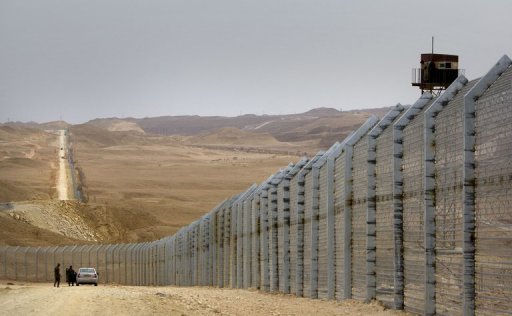I’ve never met a rape victim. I’ve never met a woman who was kidnapped, taken at knife point to a secluded place and violated sexually 14 times by seven criminals until she could no longer feel her body.
But I know these things happen. Yet like most people who have read the story of Saudi Arabia’s “Qatif Girl my outrage is directed more at the so-called “Islamic legal system that condemned the 19-year-old gang rape victim to six months in jail and 200 lashes, than at the heinous crime itself.
To add insult to injury, reports explained that she was originally sentenced in October 2006 to 90 lashes for being alone in a car with a man who was not a relative, but that her punishment was increased after she spoke out publicly about her case.
And the rapists? They receive sentences ranging from two to nine years for kidnapping, apparently because prosecutors could not prove rape.
In an interview with Human Rights Watch in December 2006, the victim said: “The first man with the knife raped me. I was destroyed. If I tried to escape, I don t even know where I would go. I tried to force them off but I couldn t. The man with the stick came in and did the same thing to me… I didn t even feel anything after that. I spent two hours begging them to take me home.
Shunned and almost murdered by her brother, she confessed contemplating suicide twice. And without the support of an exceptional husband, it’s very probable that the victim of this abomination would have already taken her own life.
What kind of justice is being promoted here? Do they really think that their so-called “religious courts will deter people from immorality, that by imposing what I believe are anti-Islamic laws on their “law-abiding citizens, they will make them behave more virtuously? Is it logical that injustice would serve the greater good?
When a sentence is so blatantly unfair by all measures – contravening unashamedly with the spirit of Sharia and is in unambiguous violation of international conventions – the most likely effect it could have is to backfire.
It would take the unshakable belief of a saint to hold on to one’s faith in a religion that has been twisted so unrecognizably to serve the sick minds of those with no mercy in their hearts.
Jurisprudence, not theology, forms the foundation of the Islamic way of life, the sharia, the path to goodness, over which Saudi Arabia falsely believes it has a monopoly by virtue of housing the holy cities of Mecca and Medina.
An unswerving resolve to serve justice must therefore lie at the heart of any system of governance that claims to be based on religion – no matter which religion it is -because all spiritual belief systems share the same set of moral pillars.
As acclaimed scholar, theologian and Catholic priest Hans Kung points out in his article “The Globalization of Ethics , the Golden Rule of Reciprocity embodied in the Prophet Mohamed’s hadith, “None of you believes until he wishes for his brother what he wishes for himself and in the words of Jesus, “So in everything, do to others what you would have them do to you , appears also in Confucian and Buddhist tradition and is the essence of morality.
It shocks me that those who speak in the name of God and have been given the power to determine the fate of other human beings, could be so far removed from this morality.
How can they forget the lessons that were etched in our minds as schoolchildren; how Prophet David was chastised for not listening to both sides of a dispute and ordered to judge aright between mankind and not to follow his desires and inclinations.
Clearly ruling on this rape case was not only prejudiced and utterly inhumane, ultimately reflecting how Saudi society seems deliberately rigged to facilitate the abuse of women, particularly domestic abuse; from the dress code to travel restrictions and, finally to law enforcement which would track down a fleeing woman and return her to her abusive husband, brother or father regardless of her pleas.
We mustn’t, however single out SA because such institutionalized violence against women is sadly rife in the entire Arab region, whether it takes the form of rape crimes where the victim unconscionably becomes the culprit, honor killings, especially widespread in Jordan, or female genital mutilation in Egypt and Sudan.
Saudi Foreign Minister Prince Saud Al-Faisal’s promise on Tuesday to have the court review the Qatif Girl case, could however give a glimmer of hope that this terrible injustice will be redressed. And if this ruling is repealed, it would mark a major victory for both the media and the efforts of human rights advocates everywhere.



